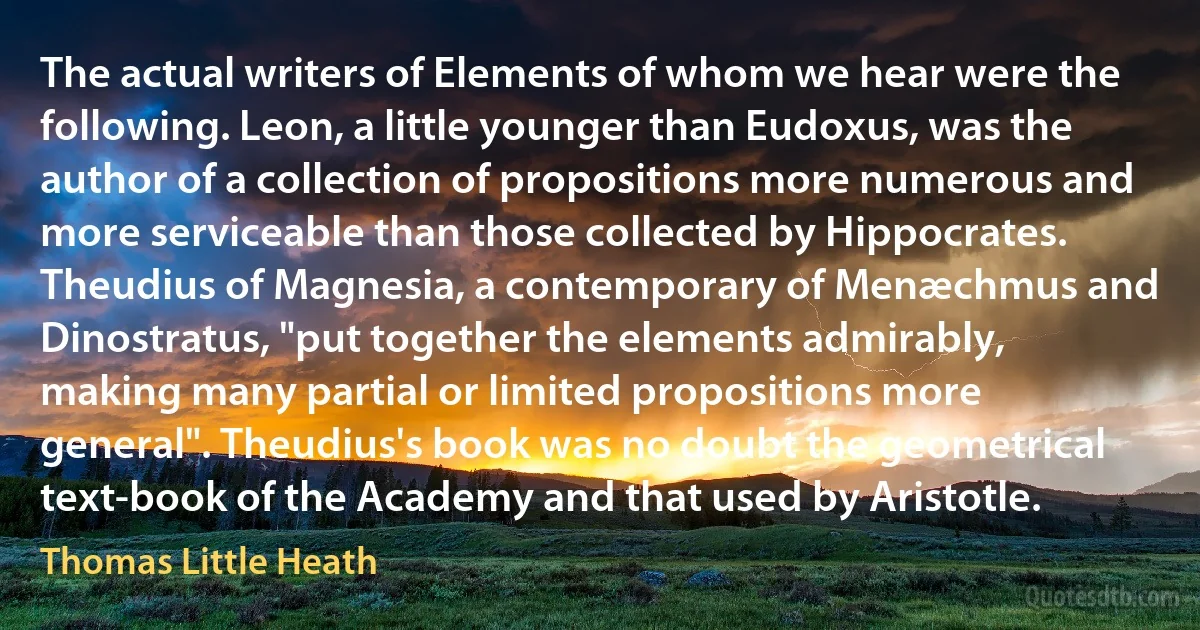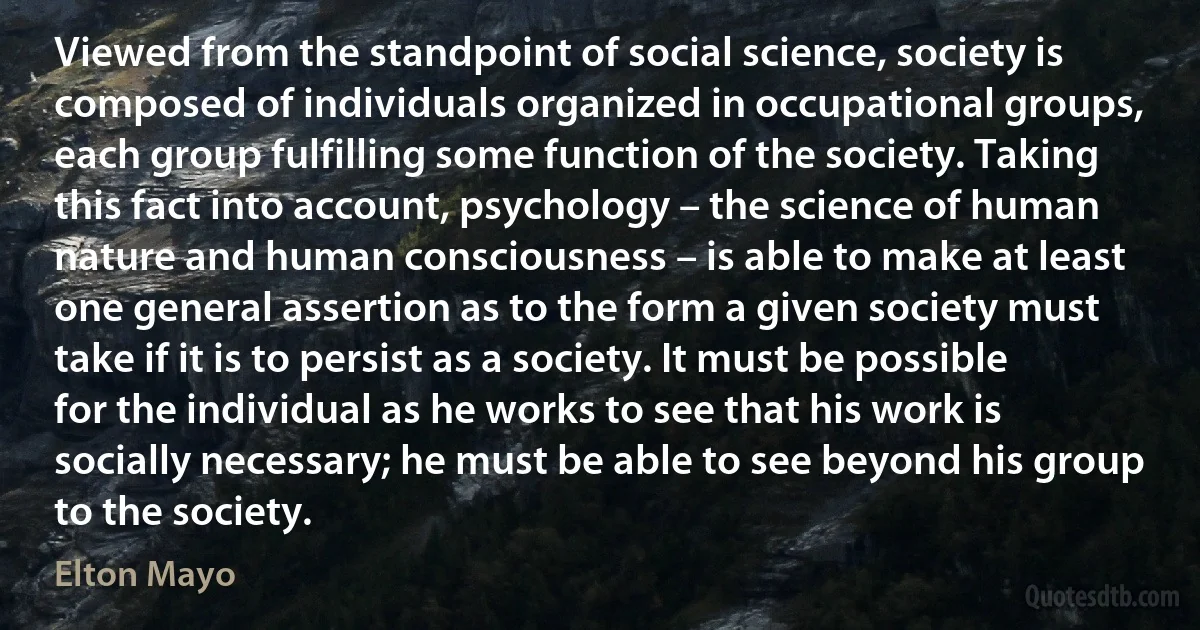General Quotes - page 97
It remains to mention some of the ways in which people have spoken misleadingly of logical form. One of the commonest of these is to talk of ' the logical form' of a statement; as if a statement could never have more than one kind of formal power; as if statements could, in respect of their formal powers, be grouped in mutually exclusive classes, like animals at a zoo in respect of their species. But to say that a statement is of some one logical form is simply to point to a certain general class of, e. g., valid inferences, in which the statement can play a certain role. It is not to exclude the possibility of there being other general classes of valid inferences in which the statement can play a certain role.

P. F. Strawson
The situation has deteriorated considerably since last year. In foreign affairs I consider the Locarno-Geneva policy wrong because it ties us and brings no advantage. We are still too weak to give any direction, and are thus always led by others, never leading, at most a compliant ally whom one can drop when one gets reconciled or can find a better one. We could have waited and become internally stronger first, above all we could have kept an entirely free hand towards the east. This we no longer have. We have succumbed to British influence and are serving British interests. Our representatives are, after all, little men who are no match for British diplomacy and its kind condescension, like the chancellor, and ambitious busy-bodies who must have their fingers in every pie, like Stresemann, the man of general distrust; but it seems impossible to get rid of him...My opposition to our foreign policy is generally known.

Hans von Seeckt
"It is commonly agreed that Keynes came up with the idea that public works are the best way to help the economy during a recession.
As a result, Keynesian economists seem to have developed a blind faith in the government in general, and in the system of public works in particular.
I do not share the same faith in the government.
I do not share the same faith in public works.

Xavier Sala-i-Martin
Can humans exist without some people ruling and others being ruled? The founders of political science did not think so. "I put for a general inclination of mankind, a perpetual and restless desire for power after power, that ceaseth only in death," declared Thomas Hobbes. Because of this innate lust for power, Hobbes thought that life before (or after) the state was a "war of every man against every man"-"solitary, poor, nasty, brutish and short." Was Hobbes right? Do humans have an unquenchable desire for power that, in the absence of a strong ruler, inevitably leads to a war of all against all? To judge from surviving examples of bands and villages, for the greater part of prehistory our kind got along quite well without so much as a paramount chief, let alone the all-powerful English leviathan King and Mortal God, whom Hobbes believed was needed for maintaining law and order among his fractious countrymen.

Marvin Harris
The patriarchal, the Jewish, and the Christian dispensations, are evidently but the unfolding of one general plan. In the first we see the folded bud; in the second the expanded leaf; in the third the blossom and the fruit. And now, how sublime the idea of a religion thus commencing in the earliest dawn of time; holding on its way through all the revolutions of kingdoms and the vicissitudes of the race; receiving new forms, but always identicalin spirit; and, finally, expanding and embracing in one great brotherhood the whole family of man! Who can doubt that such a religion was from God?

Mark Hopkins
I am not saying I will vote against John Ashcroft because he is pro-life, ... But let me say if someone was nominated for attorney general who was vehemently pro choice -- who in his or her career spent decades trying to find ways to expand the law abortion at nine months would be perfectly legal -- wouldn't you be more upset and raise more of a voice than against a nominee who was simply pro-choice.

Chuck Schumer
Be vegan' and ‘make peace' are fantastic four words to think about in daily life and in everything we do. Being vegan means to me that we not only eat healthy foods, but we have respect for all life on the planet. And that's important. And ‘make peace,' that's important as well. Peace really has to start with us, individually. And then hopefully it will spread, and we emit that, so to speak, in our behavior in general and the things we do, whether it is private or work.

George Chakiris
For the sake of this fifth message of peace to Ireland, this farrago of superlative nonsense, the vexatious and costly machinery of a general election is to be put in motion, all business other than what may be connected with political agitation is to be impeded and suspended; trade and commercial enterprise, now suffering sadly from protracted bad times, and which political stability can alone re-invigorate, are to be further harassed and handicapped; all useful and desired reforms are to be indefinitely postponed; the British Constitution is to be torn up; the Liberal party shivered into fragments. And why? For this reason and no other. To gratify the ambition of an old man in a hurry.

Lord Randolph Churchill
![The Prussian diet has not an ideal composition...but has done useful work; in spite of this it will be necessary to preserve the [general] franchise for the Reichstag and to change the franchise for the diet. I most sincerely regret the announcement of such a change. It is merely a concession to the supposed popular will. (Hans von Seeckt)](https://cdn.quotesdtb.com/img/quotes_images_webp/45/hans-von-seeckt-announcement-962345.webp)


